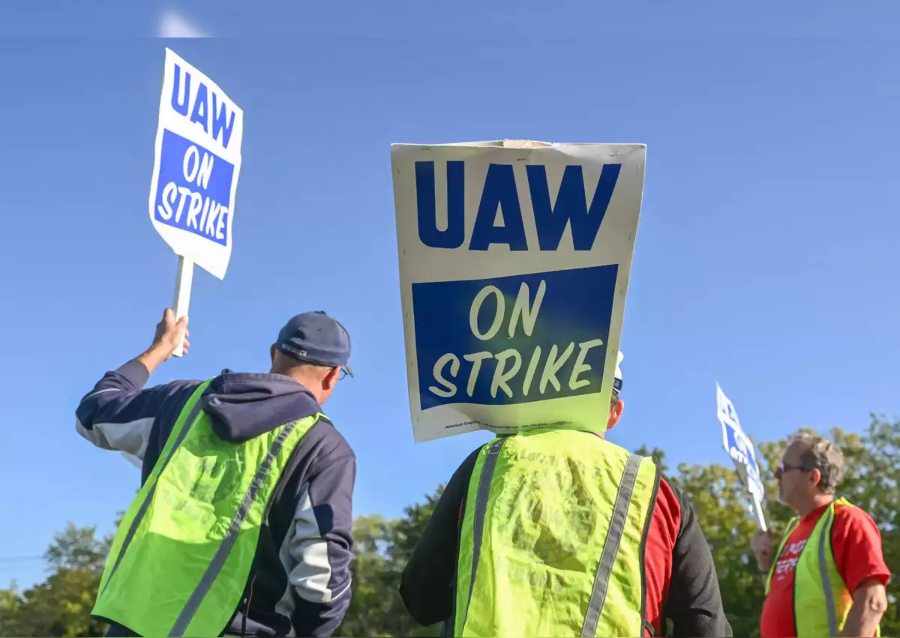The United Auto Workers (UAW) union has initiated simultaneous strikes at major automakers, including General Motors, Ford Motor, and Stellantis (Chrysler’s parent company), leading to concerns about a potential parts shortage.
The strikes, regarded as one of the most significant industrial labor actions in the United States in decades, have already disrupted production at plants responsible for popular models like the Ford Bronco, Jeep Wrangler, and Chevrolet Colorado.
As the strike unfolded, its impact quickly began to ripple through the automotive industry. Automakers expressed concerns about the interconnected nature of their production systems, warning that the UAW’s targeted strike strategy could affect facilities not directly involved in the labor action.
Ford advised 600 non-striking workers not to report to work. In comparison, GM informed approximately 2,000 workers at a Kansas plant that their factory might shut down due to parts shortages resulting from a nearby struck facility.
At the heart of the strike are the UAW’s demands for a greater share of profits, shorter workweeks, the reinstatement of defined benefit pensions, and enhanced job security, particularly as the industry shifts toward electric vehicles.
Union members passionately protested the existence of a two-tiered wage system that pays newer employees significantly less than their more experienced counterparts, a system they deem unfair and tilted in favor of investors.
President Joe Biden, facing re-election, called upon auto companies to ensure workers are rewarded fairly as corporate profits soar. He urged the companies to match executive salary increases with substantial worker contracts.
According to striking workers, the “tier two” employees currently earn only half the hourly wages of senior UAW workers and receive inferior benefits, a situation they consider a betrayal of the principle of equal pay for equal work.
While the UAW has not explicitly demanded eliminating the two-tiered wage system, it has called for reduced time required to reach top pay rates. Automaker executives have pushed back, arguing that the union’s demands could render them uncompetitive compared to nonunion rivals.
Ford’s CEO warned that the UAW’s demand for a 40% wage increase would jeopardize their business. The strike’s impact on the auto industry is a matter of concern, with worries about parts shortages and potential disruptions to the supply chain.
Despite its challenges, the UAW has a substantial strike fund, but the automakers have substantial financial reserves due to robust profits from SUVs and trucks.
Though smaller than some expected, the strike continues to put pressure on automakers. As negotiations proceed, the industry watches closely to see how the parties will resolve their differences and whether it will result in a fairer deal for UAW workers.
Source:
Etimg.com

